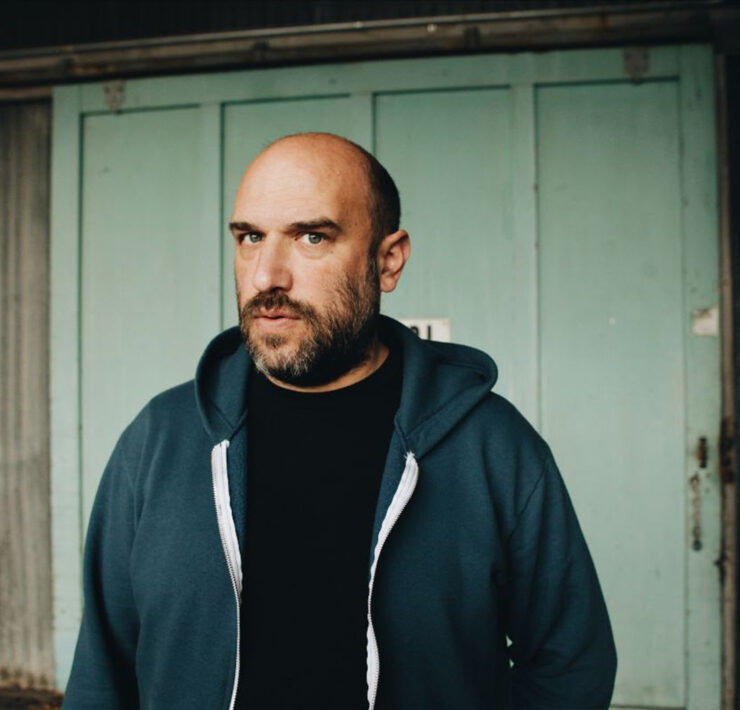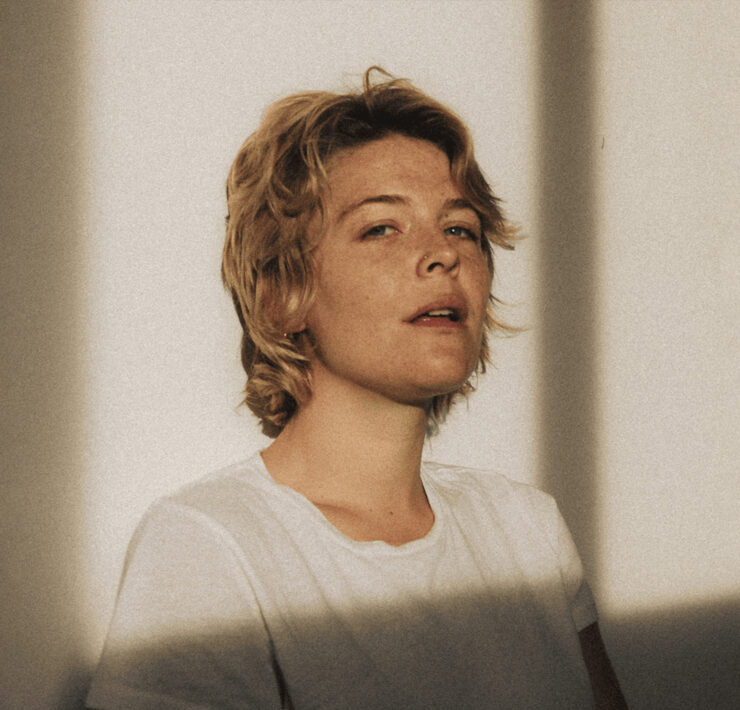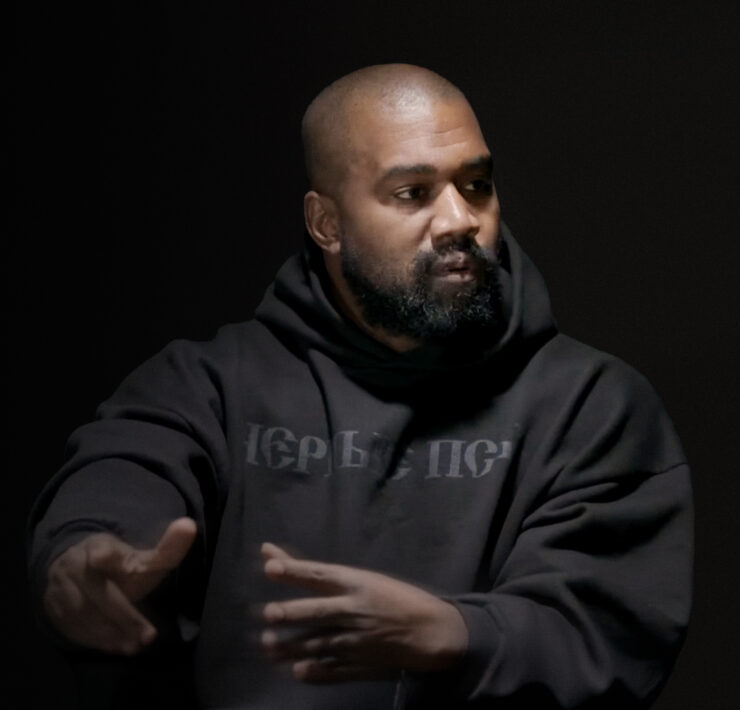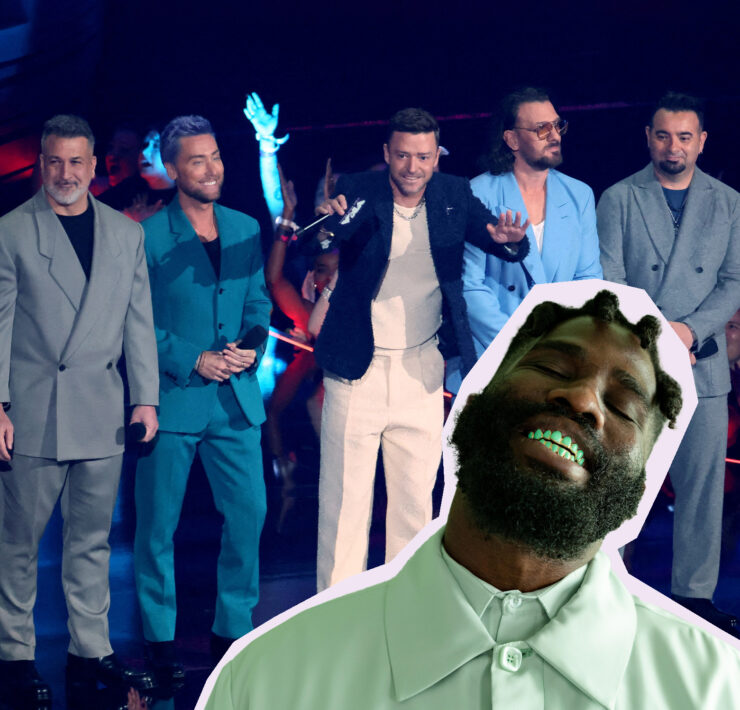Judah Akers is not given to absolutes or binaries. He wrestles with every question, not so much looking for the middle ground between two options as much as embracing the tensions and contradictions. He’s not given to a simplistic worldview (“Hopefully I’ll give you a direct answer in one of these times,” he jokes about five questions in our interview) but he has grown to the point where he sees certain rhythms in the world around him.
“When we’re born, we’re given innocence,” he says. “In some of our stories, that’s stripped off you pretty young. But for all of us, we go through some traumatic event and that innocence gets robbed of you.”
He takes just a moment to pause, to let that tragedy sink in.
“But then second innocence is more important or better,” he says. “Because it’s not something that we’re given, but we choose it, we take it.”
These are the ideas that fueled a recent spur of creative energy that Akers and his bandmate Brian Macdonald brought to their latest album as alt-rock duo Judah and the Lion. He says the band’s time on COVID lockdown really drove home the need for rediscovering what he calls “innocence.”
“Through the pandemic and my story in the last ten years, that innocence has just been completely robbed,” he says. “For me, second innocence is more beautiful because it’s like you’re choosing to see the beauty in life again.”
Choosing Beauty
As a band, Judah and the Lion have undergone some interesting evolutions in their 10-year existence. Their earliest iteration was as a bluegrass act, working with the likes of Drew Holcomb and the Neighbors. But by the time the band released their sophomore album Folk Hop n’ Roll in 2016, they had morphed into something far less easy to define, combining hip-hop beats, club pop production and Americana into a unique and signature sound. Some longtime fans weren’t sure what to make, but lead single “Take It All Back” went platinum, so the band knew they were onto something.
Their sound is continuing to evolve, with their most recent effort settling into a more straightforward rock and roll energy. But the real vibe shift is happening in Akers’ own life, where he is striving to make sense of a world on fire.
“With all that’s going on in the world, it feels like it keeps getting crazier and crazier,” he says. He’s right. As we speak, Russian forces are gaining ground in Ukrainian territory, which is only the most recent in a set of spinning newspaper headlines that undermine every attempt at getting a grip.
“But what can I control now?” he asks. “What can I control in this moment? Choosing beauty.”
The challenge, Akers says, is knowing what it means to choose beauty without blinding yourself to the reality of suffering. He says he’s an optimist by nature, but he never wants optimism to be a crutch.
“Optimistic people can be the most secretly depressed people in life, because it’s false hope,” he says. “It’s not real.”
He compares it to venturing out into a thunderstorm. A falsely optimistic person will try to convince themselves that there is no storm; it’s a beautiful day, why worry? But a person with real hope will acknowledge the storm and the danger it presents but decide that “I’m going anyway.”
Revival
When things get difficult, Akers says he tries to take inspiration from his niece and nephew, who have been providing him with a fresh outlook on life. “They don’t have a hard time getting out of bed,” he says wistfully. “They wake up and they’re like, ‘I got to go to school today!’ or ‘I got to go see my friend!’”
That’s the innocence he’s talking about — the zest for every day that gets stripped from us over time. He’s trying to rediscover the outlook of childhood without losing his real assessment of the world. It’s difficult, but somewhere in that tension, Akers believes, is the key to a better level of existence.
“It’s not false hope or the imagination that life is perfect,” he stresses. “No, life is really difficult! But controlling thought patterns and choosing to see the beauty in life and in one another, just like my nieces and nephews do very naturally — that’s what I want to be like.”
Easier said than done, of course, and Akers admits he’s “not perfect at it.” He says the key for him has been learning to love other people better. He defies the commonly accepted wisdom that you have to love yourself before you can love someone else. “Love for yourself will always come from loving someone else to me,” he says. “Figuring out how to do that is like a revival or awakening.”
He thinks on that for a moment, and then clarifies: “Innocence is revival.”
I Got This
For Akers, the process has involved daily habits. He makes it a point to say 10 things he’s grateful for out loud every morning before he looks at his phone.
“If a negative thought comes in my head, I try to look at it and be like, ‘Hey, that’s not real. That’s not necessary. This is what I can control right now with my thoughts or with my life. I can go on a walk with my dogs and it’s beautiful outside.’”
“OK,” he says. “I’m going to consciously choose that.”
Akers hopes that, on some level, the music the band is making will help other people choose that, too.
“We wanted to point people to that joy, to that hope, which doesn’t really feel like is necessarily around right now.
“There’s definitely sad songs and heavier songs on the record,” he continues. “But at the end of the day, even though that’s the reality, I think I’ve always wanted to point people back to like, OK, that’s true, but how do we look ahead? How do I fill people up with a sense of like, I got this?”
He shrugs a little. “We’re just wanting to reflect hope and light in an industry that sometimes, well, you can go and get fed a lot of, like, not that.”
He doesn’t feel a particular burden to make a difference. He says it’s more of a passion — something he’s choosing instead of an obligation he’s carrying. He hopes that passion connects and, moreover, that it helps set a new course for the people who listen.
“It just feels kind of a new beginning,” he says brightly “Like tides are turning a little bit.”
Maybe they are. But even if not, Akers is convinced that when it comes to hope, the choice is yours.


























